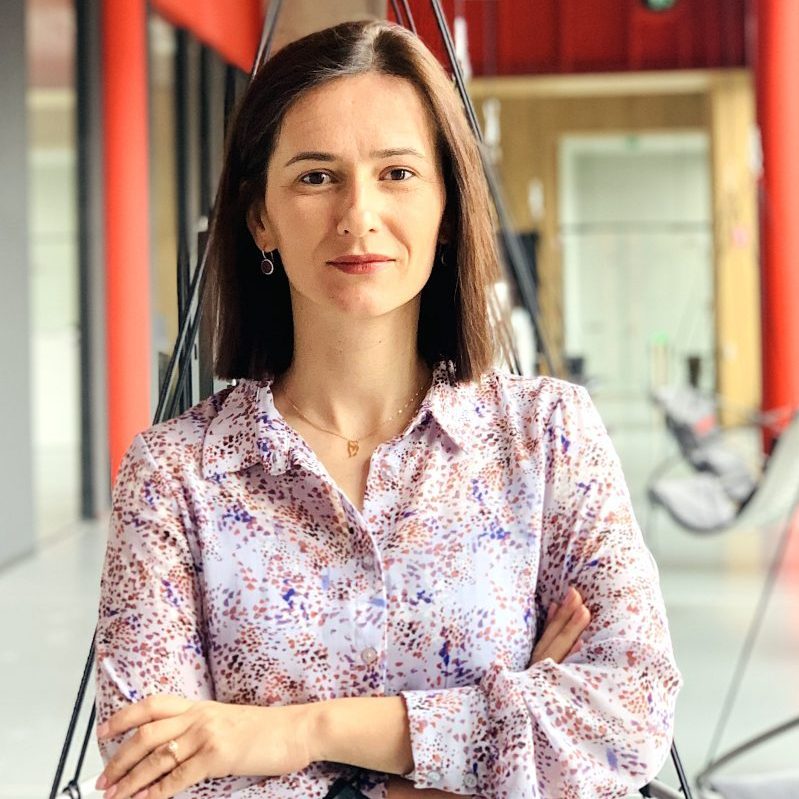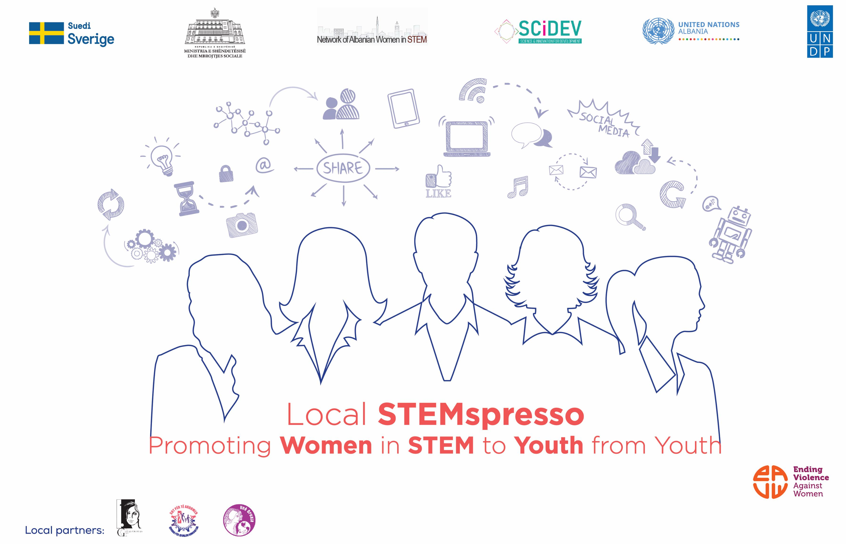SCiDEV Pioneering Support to Women in STEM and Diaspora

The Center Science and Innovation for Development (SCIDEV) is a Tirana-based think tank working across Albania.
We talk to Blerjana Bino (PhD), SCiDEV's Executive Director. Blerjana is an expert in project design, development, monitoring and evaluation, and a seasoned researcher.
 Thank you for this interview! In recent years you have been quite proactive in Albania. What is SCIDEV’s focus now?
Thank you for this interview! In recent years you have been quite proactive in Albania. What is SCIDEV’s focus now?
SCiDEV closely collaborates with partners in the region to contribute to democratization and sustainable social and economic development. SCiDEV engages primarily in policy and action-oriented research that can inform decision-making processes, influence policy development and drive advocacy efforts.
To achieve this SCiDEV works with academia, civil society, media, and private and public institutions. Our key pillars of work are good governance; digital transformation and innovation; media and democracy; strengthening research to society links.
STEM enthusiasts spreading good vibes
One of our flagship initiatives is nesting the Network of Albanian Women in STEM (also here) which aims to contribute to the social and economic empowerment of women by increasing their representation in STEM, both in academia and industry.

In 2021 we continued to grow by initiating new projects and reaching more target groups, strengthening our existing cooperation with partners, building new partnerships, expanding our network of experts, and challenging ourselves in many ways. With growth come challenges as well and at SCiDEV we are still in the process of consolidating our practices on how to capitalize on lessons learnt, how to learn from failure and how to balance the pillars of our work with the need to do fundraising and ensure sustainability.
Our focus in 2022 is to consolidate our initiatives as per our four key pillars, expand our network and increase our public engagement in Albania and our reach to more target groups in areas outside of Tirana as well as cooperate more with partners at regional and EU level.
A couple of years ago you launched an interesting STEMspresso initiative. What is it and why you got into this?
#STEMspresso is an express introduction to an exceptional woman in STEM and her work. It consists of monthly online/offline short meetings where speakers share their research, careers and work in STEM. These episodes are accessible online as videos and podcasts.
 We did 7 #STEMspresso in 2021 and carried out regional ones in 2022 in cooperation with partners from Montenegro and Kosovo*. Initially, one of our Network founders started to do the episodes to increase the visibility of women in STEM, but we had no financial support or formal training on podcast production. So, it was mainly passion and commitment.
We did 7 #STEMspresso in 2021 and carried out regional ones in 2022 in cooperation with partners from Montenegro and Kosovo*. Initially, one of our Network founders started to do the episodes to increase the visibility of women in STEM, but we had no financial support or formal training on podcast production. So, it was mainly passion and commitment.
Then we saw that there was interest and that these short episodes were helpful to inspire others. so we strengthened our efforts and started to do some fundraising to consolidate #STEMspresso.
We engaged young people in developing #STEMspresso episodes of local women in STEM from Pogradec, Shkodra and Durres. These young women and men were trained in storytelling and multimedia production and with the mentoring of communication experts and STEM experts they developed podcasts with stories of girls and women in STEM from their own communities. This was done with the support of the UNDP in Albania.
[gallery columns="1" size="large" gillion_style="slider" ids="7148,7149,7150,7151,7152,7153,7154,7155"]
Currently, we are developing additional 12 profiles of Women in STEM from Albania and in the diaspora with the support of Reporting Diversity Network 2.0 project funded by the European Union. Basically, we hope to provide a platform for women in STEM to share their stories and paths to inspire others and connect with other women in STEM. You can access the episodes on YouTube, Spotify and Anchor as well.
You are one of the members of the regional Women in STEM Network. What is your motivation and what do you seek to accomplish through the Network?
The regional Women in STEM Network is important to us primarily for networking with other peers in the region that work in the same area. It has been useful for us to connect more and develop joint initiatives with organisations and individual experts that we have met as part of the Women in STEM Network.
The interactions during the meetings of the Women in STEM Network have also been very helpful. In some cases they challenge us and in others confirm that we are not alone and that we face similar challenges. We learned that we can co-develop solutions together or at least plan concrete actions together.
Diaspora seems to be one of your enduring interests. What has been done with regards to engaging diaspora so far in Albania?
There are different initiatives. Unfortunately, the State Ministry for Diaspora was dissolved in 2021 along with other agencies created since 2017. Their goal was to increase the contribution of diaspora to Albanian academic, cultural and economic life.
Nonetheless, there are few major programmes such as Connect Albania of the International Organization for Migration (IOM) to foster engagement of the Albanian diaspora in Italy in the economic development in Albania.
Another major programme is the AADF Read Programme. This is a 7-year project that will connect higher education institutions in Albania with the Albanian scientific diaspora and their respective academic institutions.
Germin's OriginAL initiative is trying to reconnect Albanian youth in diaspora with their roots in Albania and Kosovo*.
At SCiDEV, we have been also exploring the potential of diaspora to support the development of local media in Albania with some interesting findings here. We are also keen in engaging with diaspora in most of the things we do at SCiDEV. For example, including researchers in the diaspora in our studies to collaborating with women in STEM in the diaspora in academia and industry.
We have also facilitated a short research stay of scholars in the diaspora in Albanian research centres and universities in an effort to build future more sustainable cooperation. However, a more systematic approach is needed by institutions for diaspora engagement and brain circulation.
Which success stories would be useful to scale regionally? For example, connecting the Western Balkans’ scientific diaspora with their home academic institutions?
#STEMspresso as a podcast series can be easily scaled up at regional level, including diaspora as well. Our model of engaging young people in promoting Women in STEM from youth to youth is another practice that can be scaled up regionally.
In terms of diaspora, for sure systematic connections of Western Balkans’ scientific diaspora with their home academic institutions is key. It can serve to connect people and institutions and build future more sustainable cooperation. This can greatly improve the quality of research output in the region. It can facilitate the access of researchers from the Western Balkans to better infrastructure and resources, for instance in the EU or USA.
